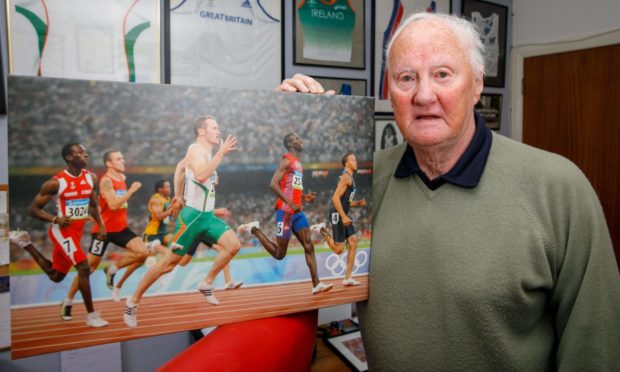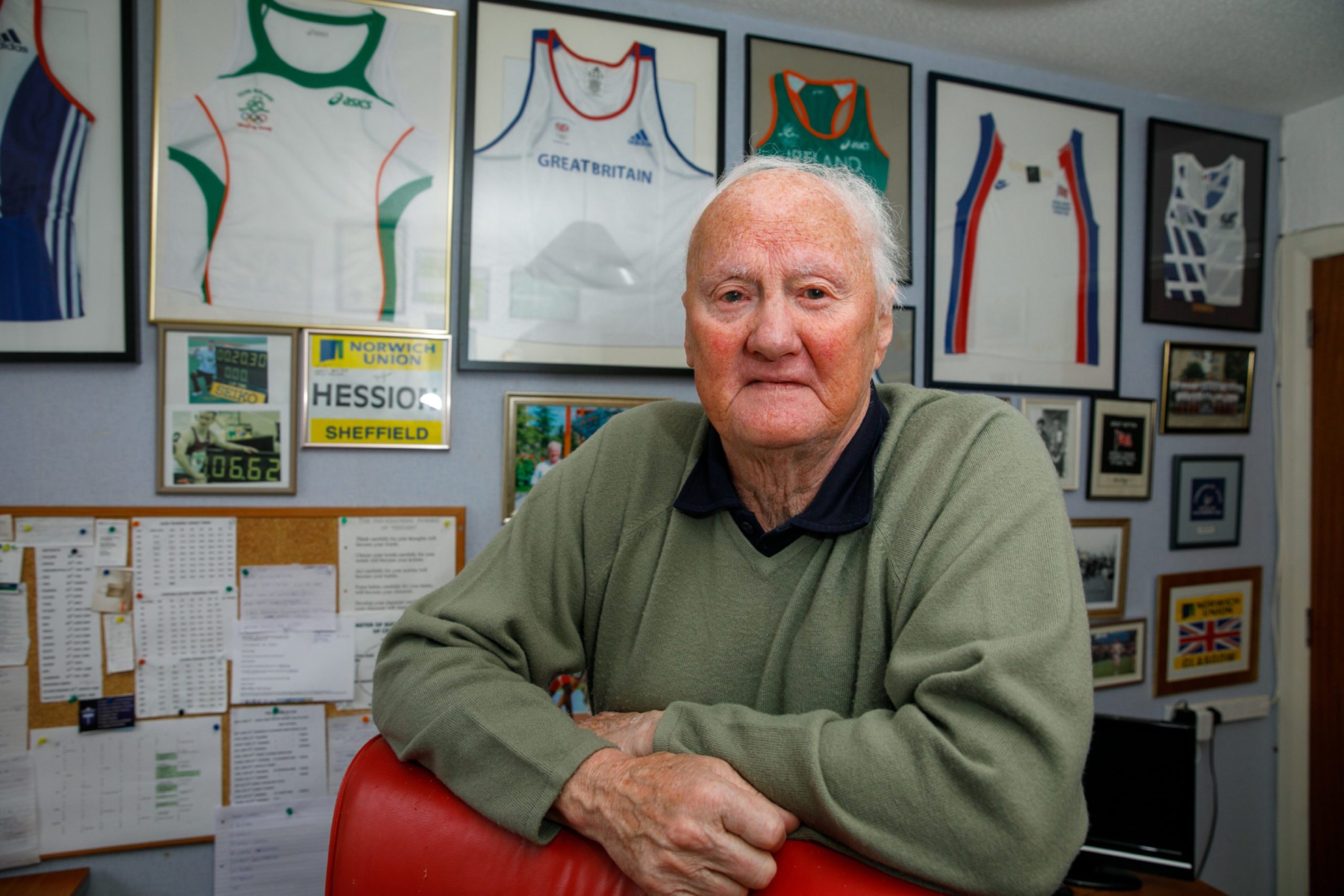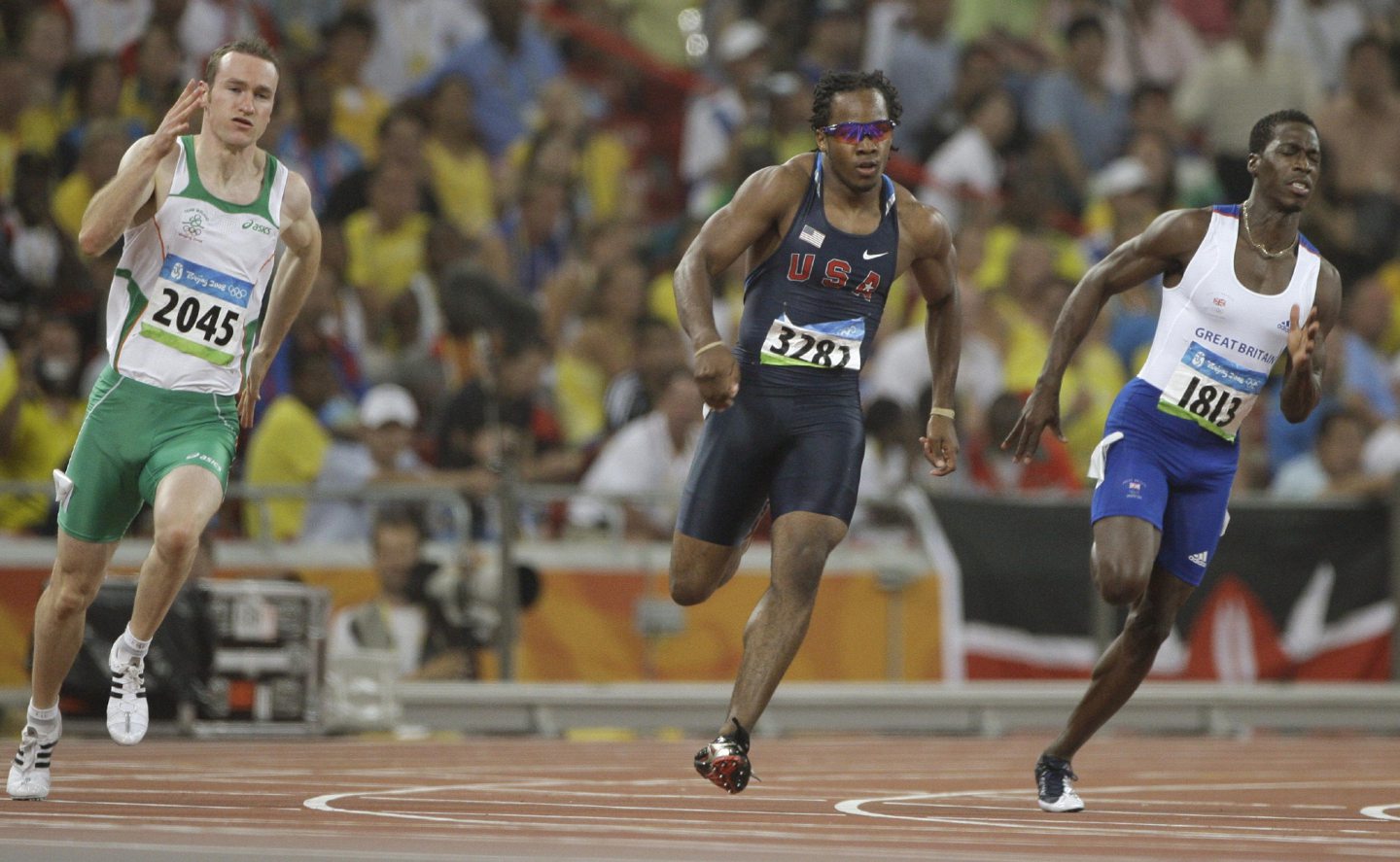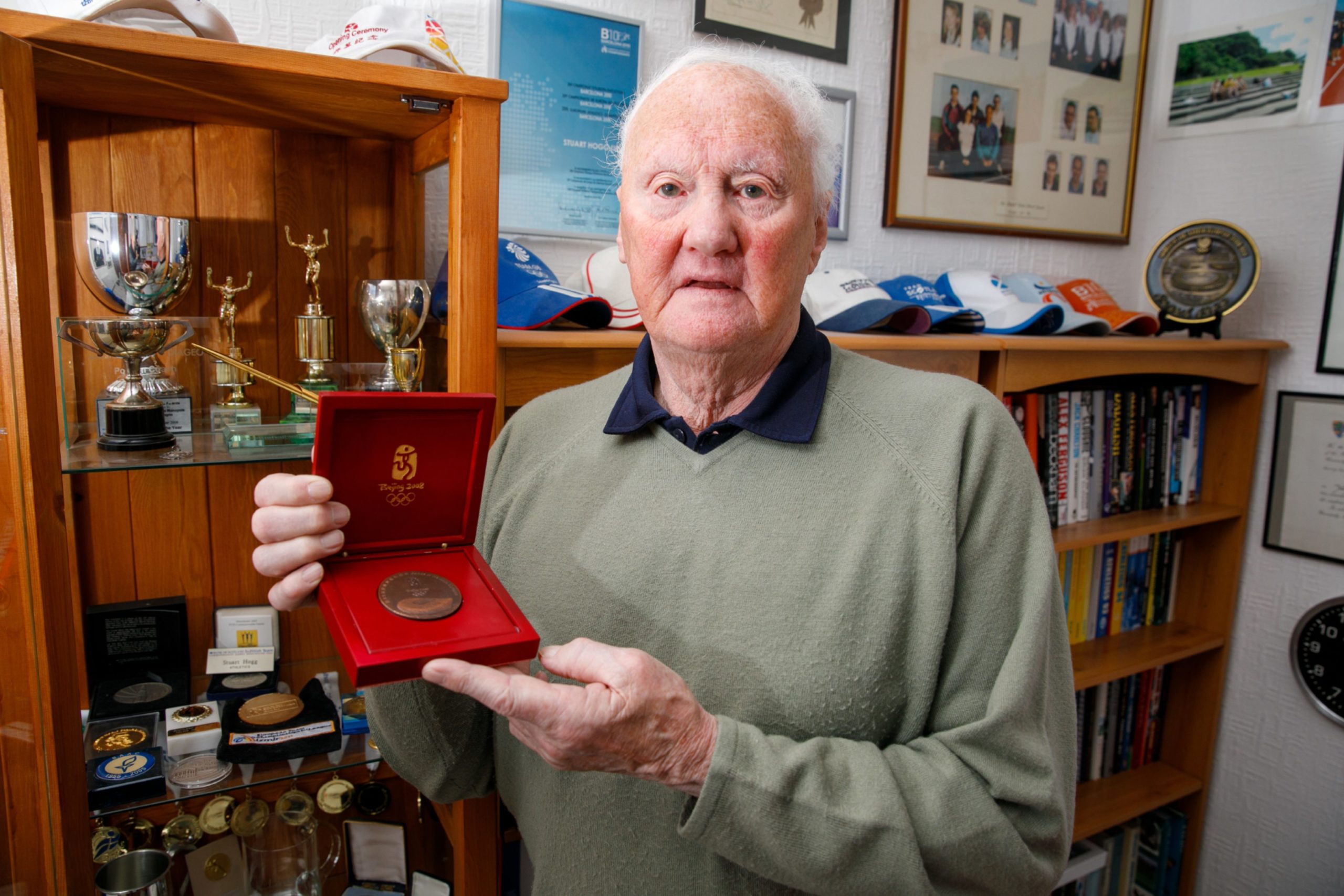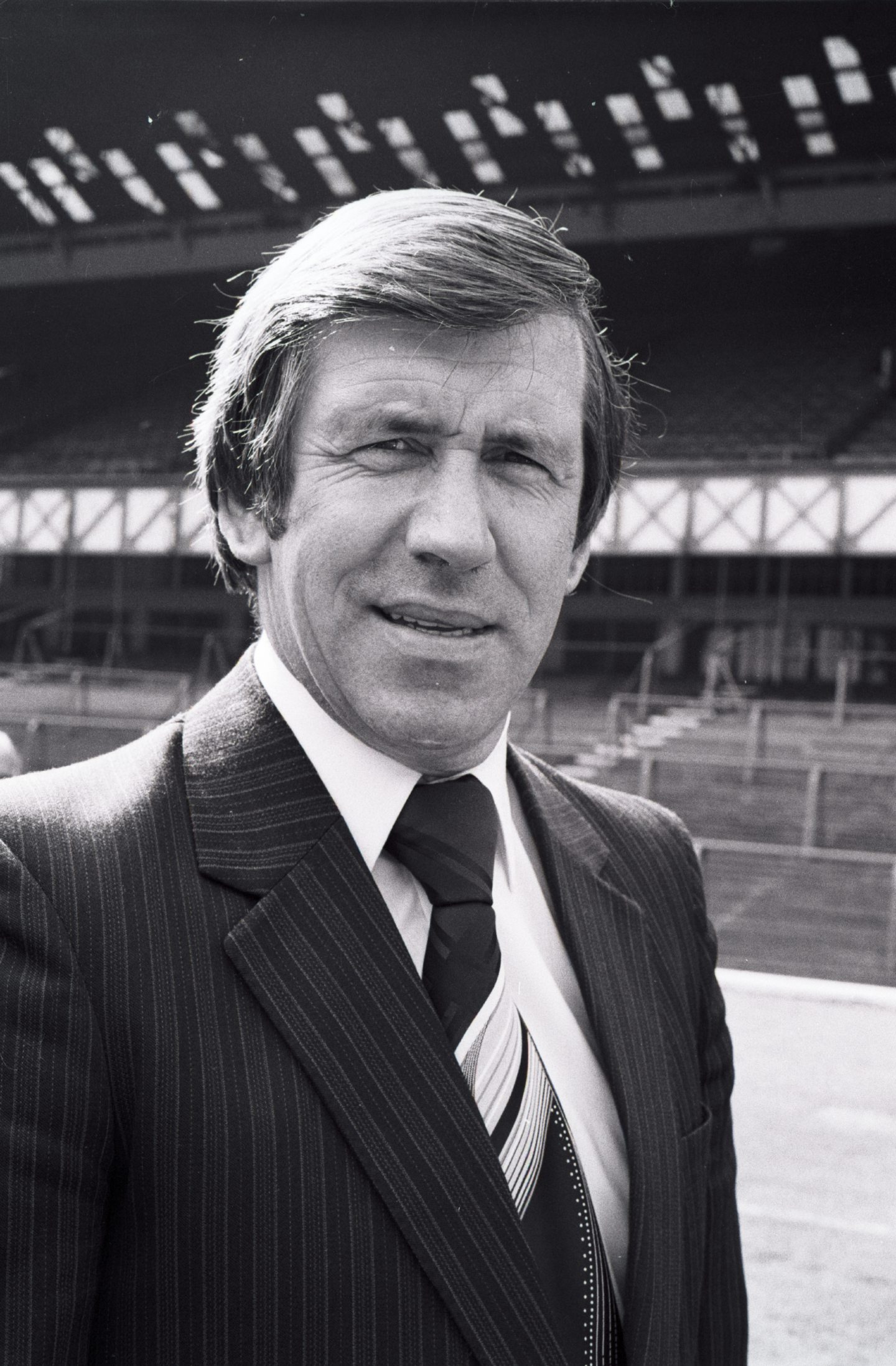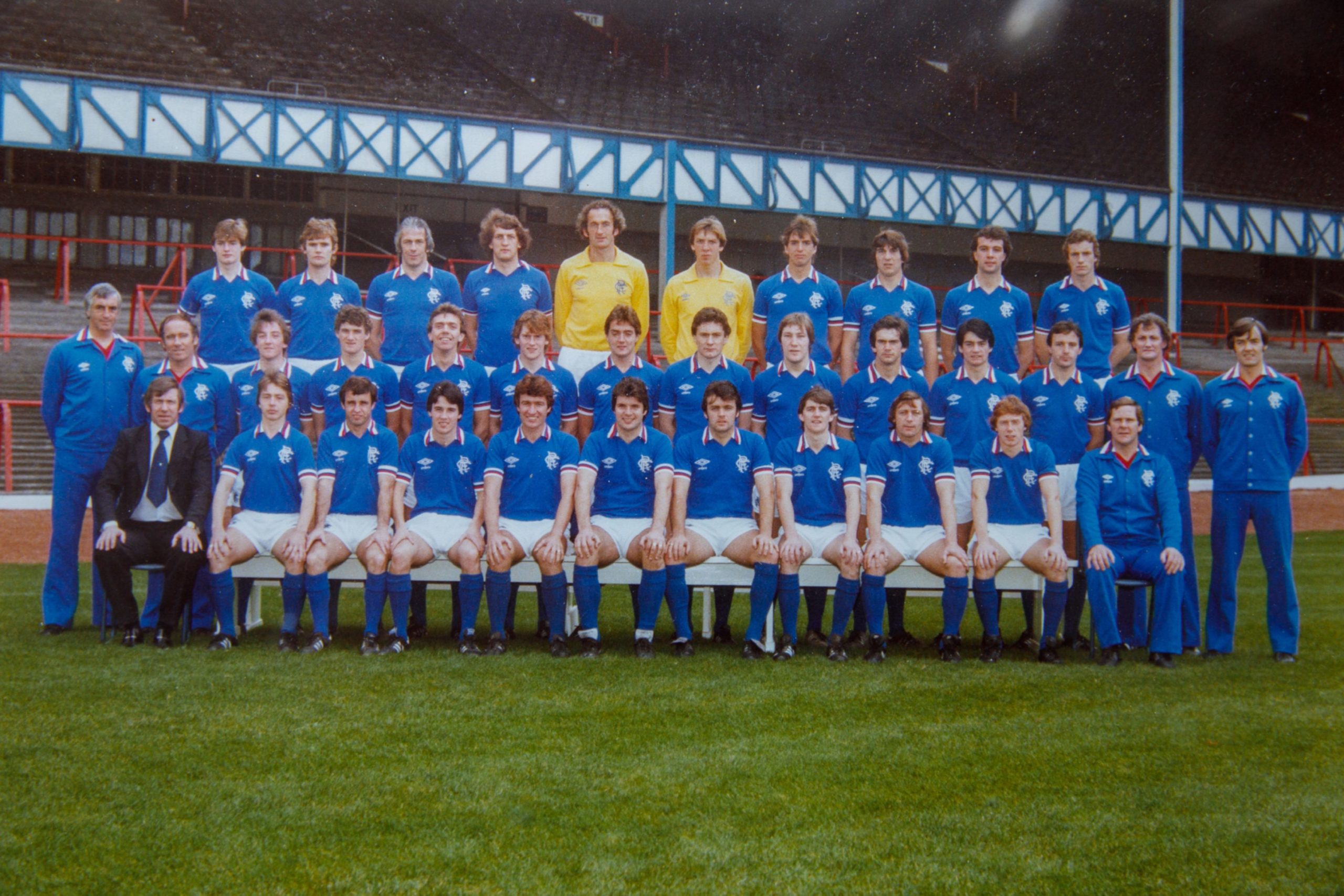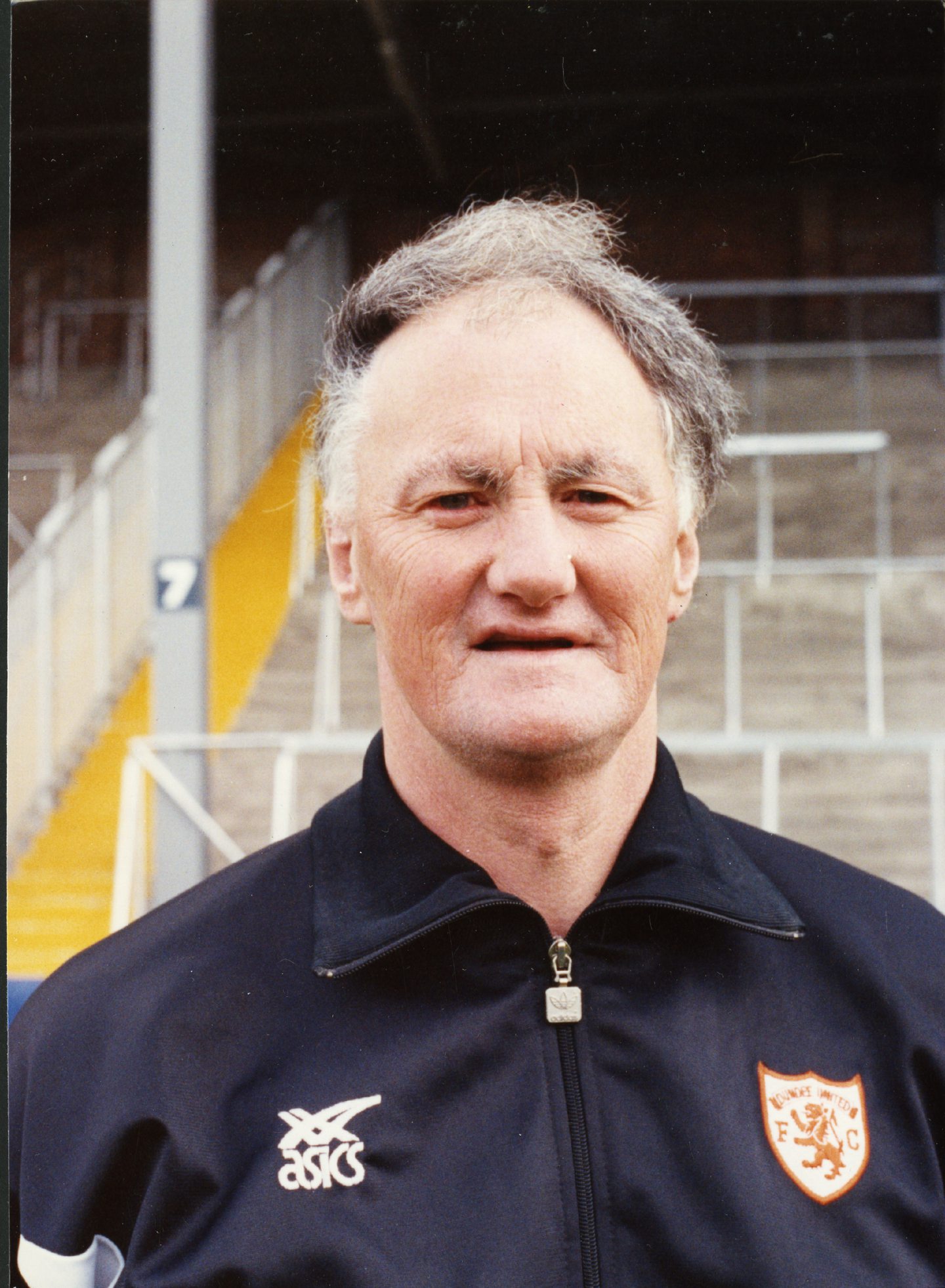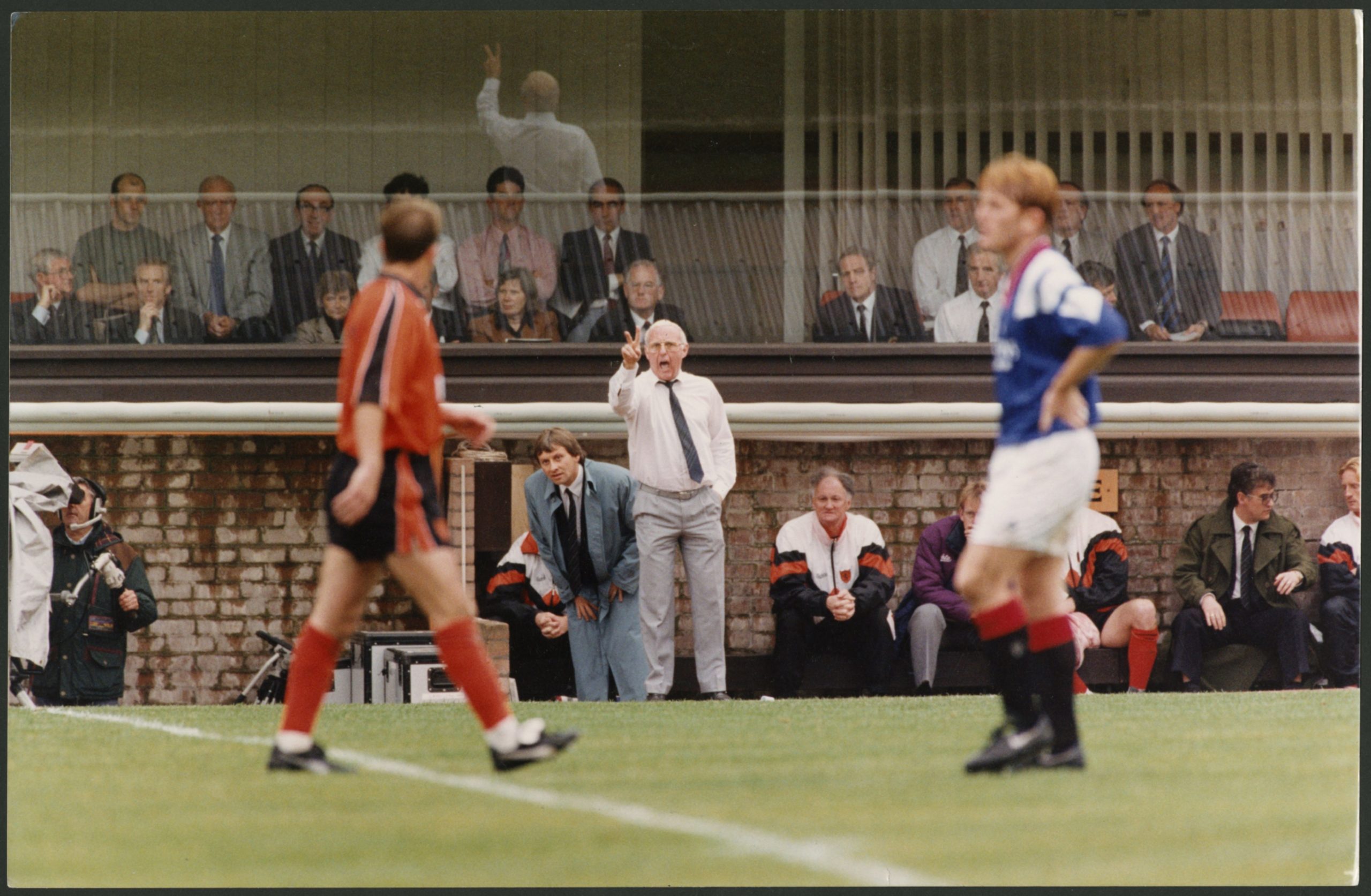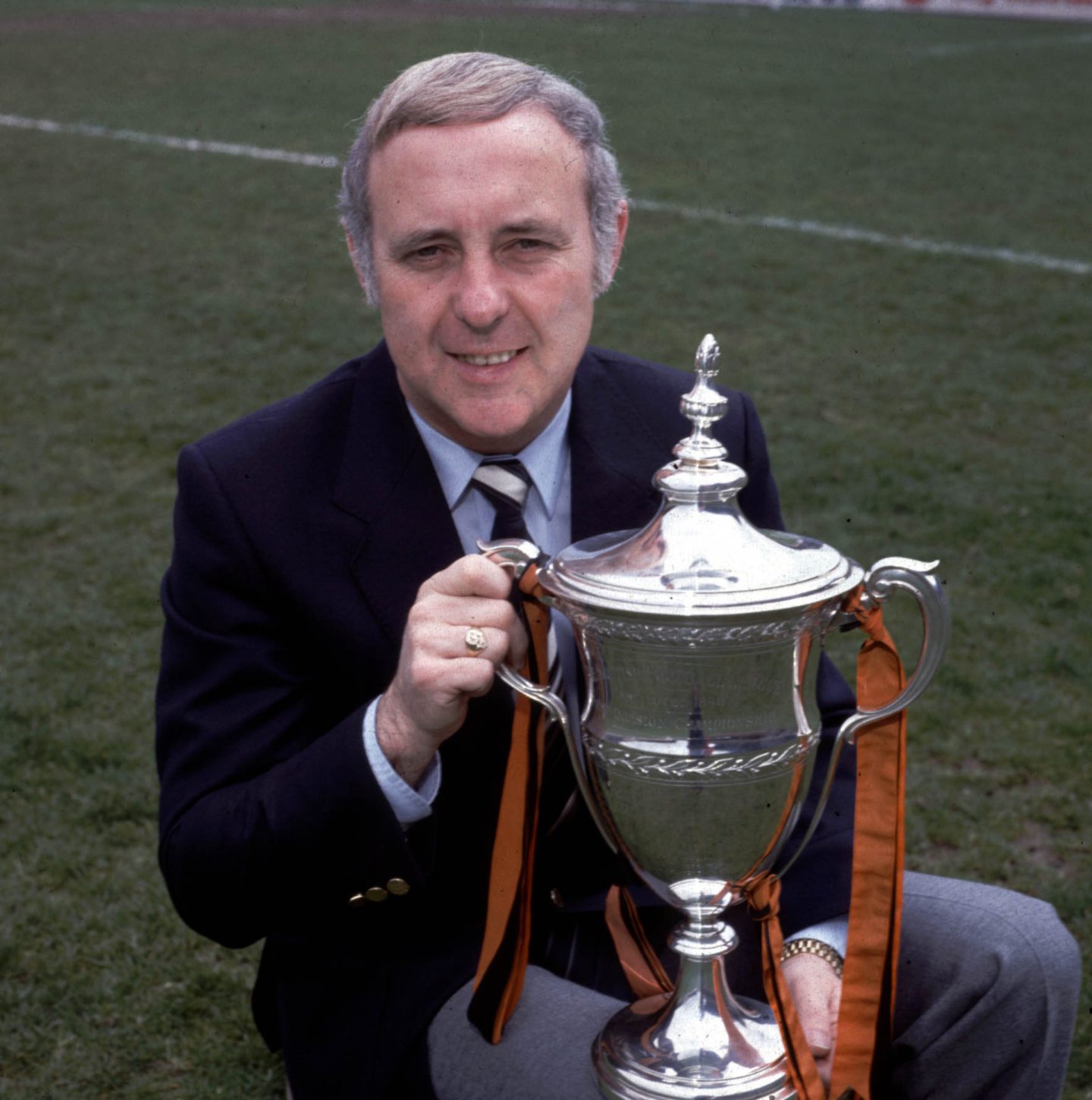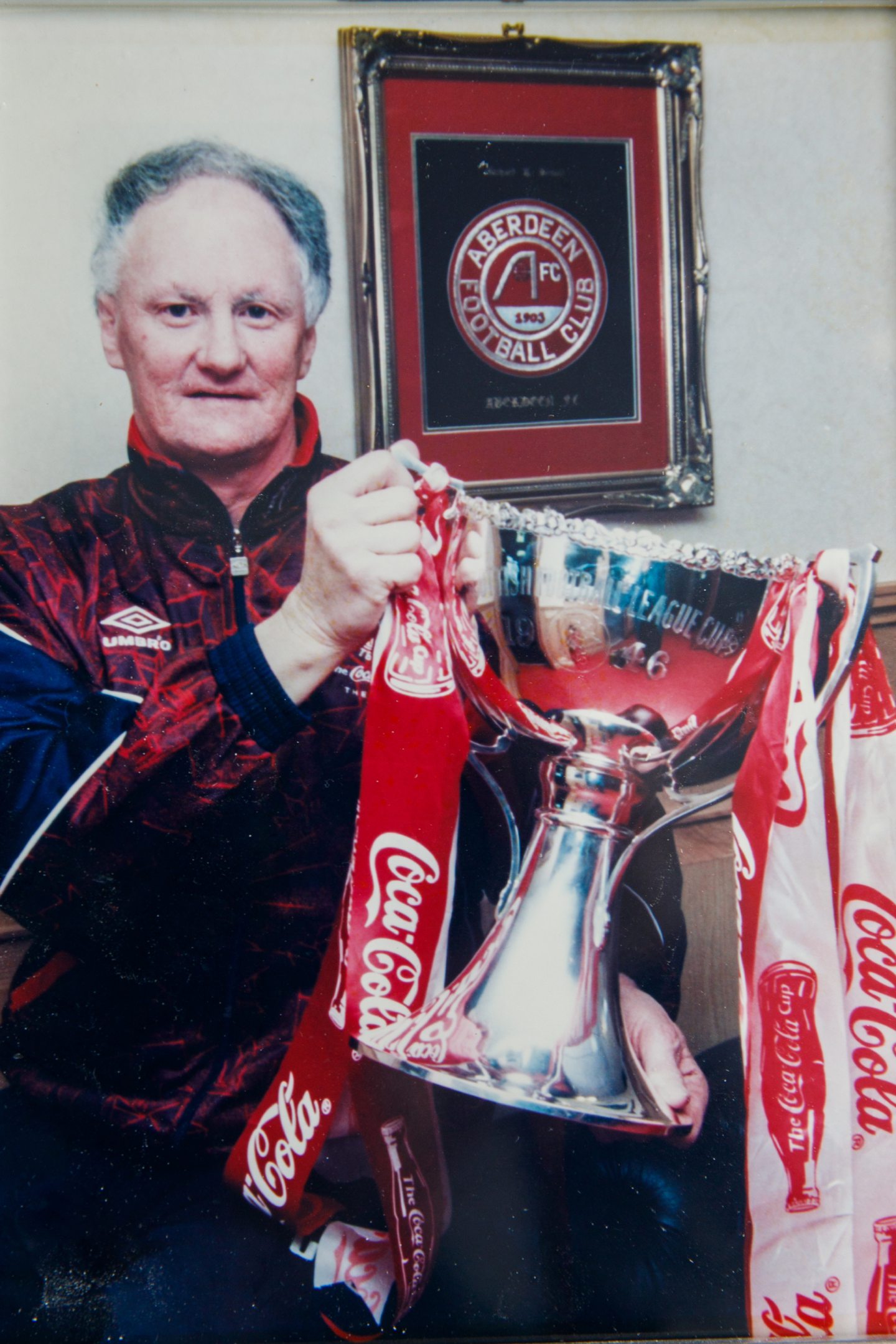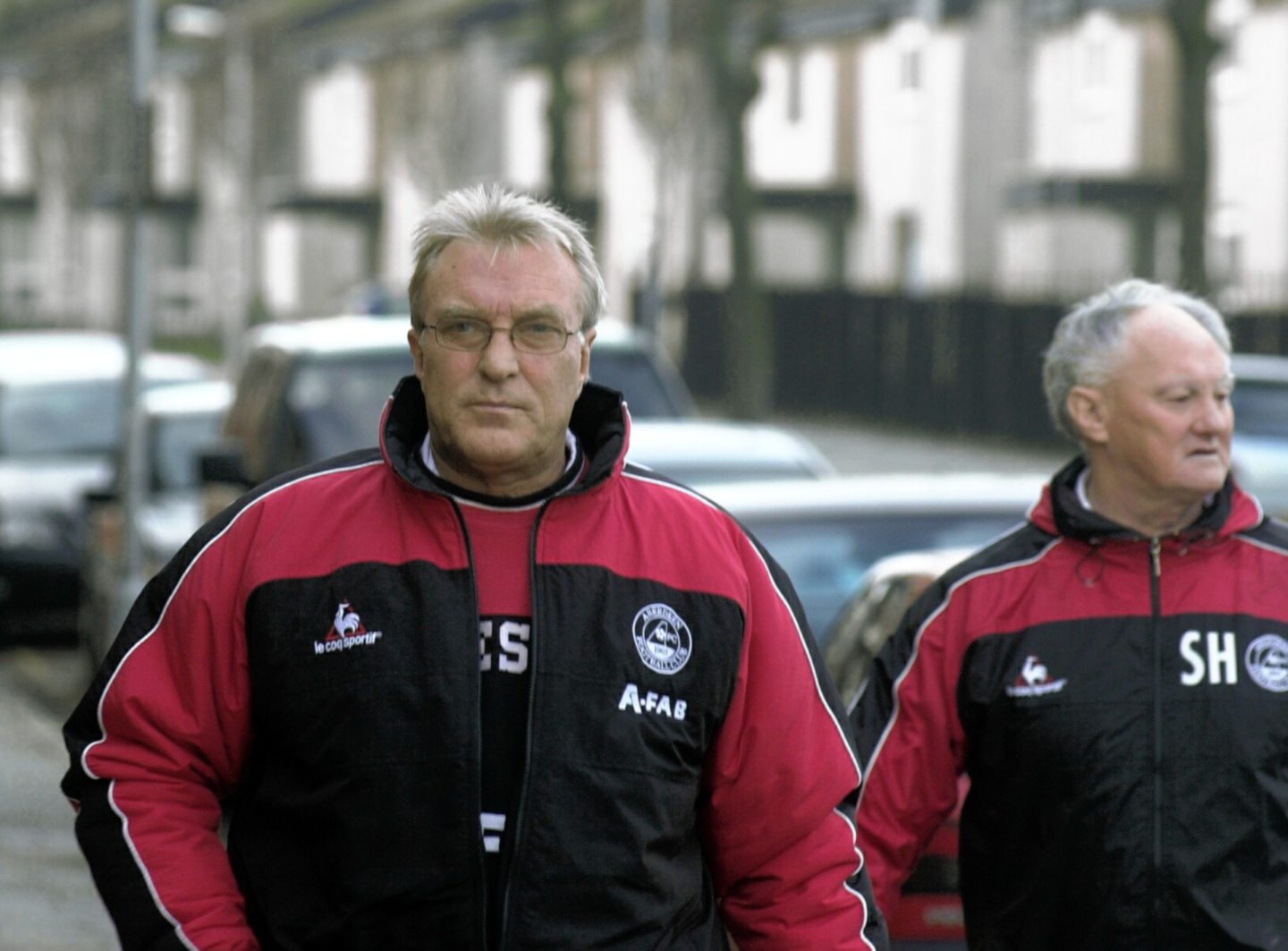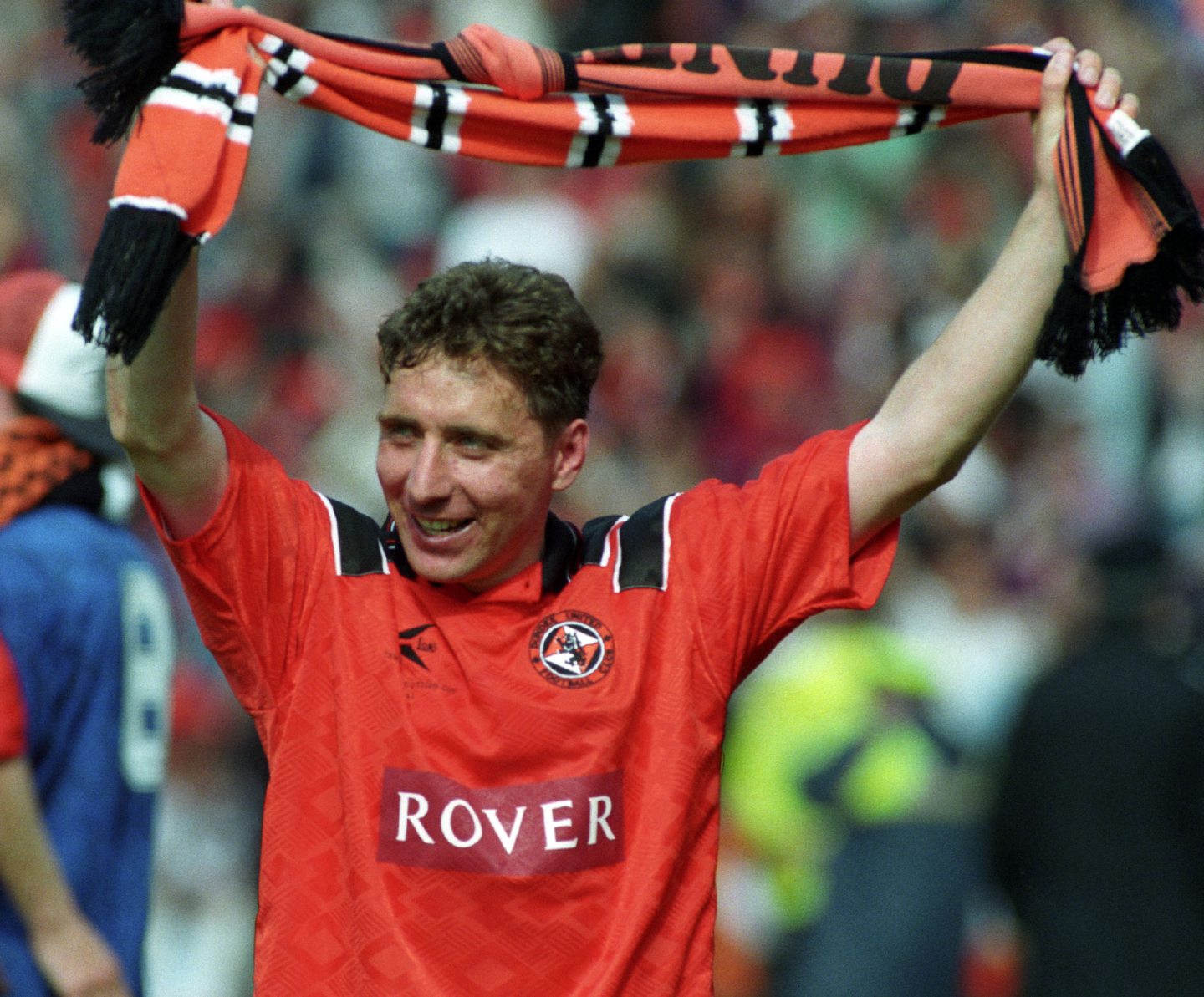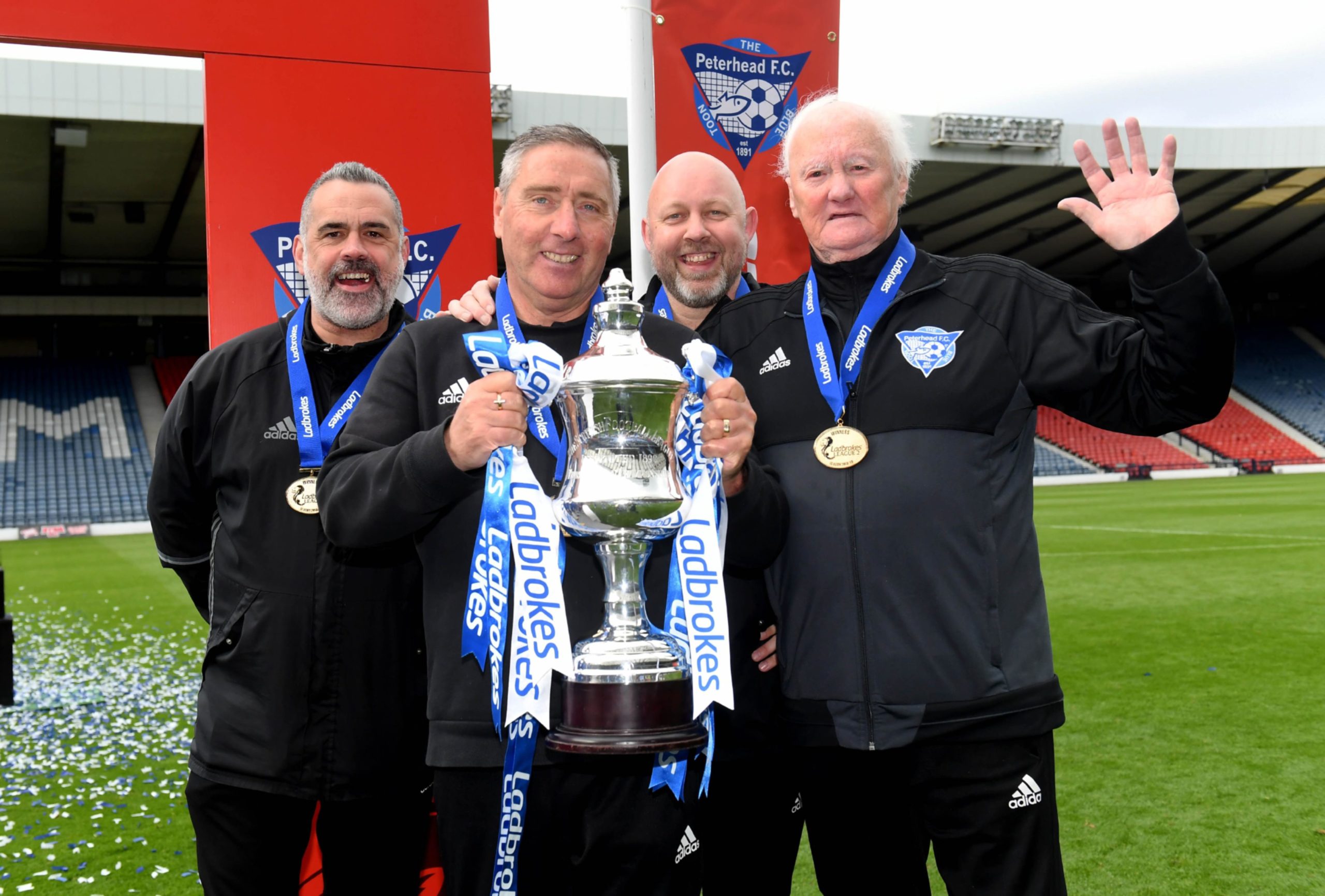Across his career Stuart Hogg has worked with world class athletes and at some of Scotland’s top football clubs.
At 81 years old, he still has the drive to help athletes and footballers succeed.
Here Hogg, who is now fitness coach with north-east side Peterhead, reflects on competing as a sprinter, becoming a coach and training Olympians, moving into football and working under the likes of John Greig, Jim McLean and Ebbe Skovdahl.
Hopes of representing his country dashed
Growing up in Cardenden, Fife, Hogg started sprinting as a child and competed on the summer games circuit in the 1950s, 60s and 70s.
His hopes of representing Scotland and Great Britain at major championships were dashed at an early age.
This was in the era when only amateurs could be selected to represent their country.
Hogg explained: “My father and I didn’t know the situation and I ran in Highland Games.
“I got into that by mistake because myself and my father were both ignorant about the situation.
“The first prize I got I was 13 and I refused it because I wanted to stay amateur and compete for my country.
“But the rules were, if you had competed against professionals, that was you professional. You didn’t have accept to money – if you’d competed against professionals that was you.
“That rule wasn’t changed until long after I was finished so I had no option.
“If I wanted to be reinstated as an amateur, I could be for a small fee, however, even with that you could never compete for your country.
“So from the age of 13 I couldn’t compete for Scotland in anything.
“I thought: ‘what’s the point in getting reinstated as an amateur if you can’t compete for your country?’
“So I never did get reinstated and ran on the Highland Games circuit. I won the British Professional Sprint Championship at one time (1967), but it wasn’t like competing for your country.
“I was competing for myself, it was an archaic system, but they eventually had an amnesty in 1986.”
Coaching at the top level
Having been self-coached for periods of his own sprinting career, Hogg started coaching others from the mid-70s onwards.
During his time in athletics, he has helped a number athletes achieve success and been to multiple Olympics, World Championships, European Championships and Commonwealth Games.
Between 1987 and 1991, along with Tommy Boyle, he coached distance runner Yvonne Murray.
During this period, she won a bronze medal in the 3,000m at the 1988 Olympics, gold in the same event at the 1990 European Championships and 1989 World Cup, and a silver medal at the 1990 Commonwealth Games.
Meanwhile, the first senior international Hogg worked with was sprinter Aileen McGillivary.
He helped her win the Scottish 100m title on seven occasions, as well as competing at the World Indoor Championships and Commonwealth Games.
Hurdler Allan Scott was another who Hogg coached at the Olympics, as was Irish 400m runner Marian Heffernan.
Hogg has also worked with the recently retired Eilidh Doyle in 2009 and 2010, and Irish 60m, 100m, 200m and 300m record-holder Paul Hession.
During his career, Hogg has been named Scottish Athletics coach of the year on three occasions, as well as receiving the lifetime achievement award from the association.
He said: “There’s a story for every athlete I’ve coached.
“You do your job, I’m experienced and you get to know your athletes and know what they need.
“The likes of Yvonne, you never had to go and talk to her when she was warming up.
“It’s each individual and what they need. With Paul, we had a routine for every meeting we went to.
“We’d get the stadium, put our bags down in the gazebo where the team physio was, walk round the warm-up track and then go back and start reading a book.
“It’s not every athlete that would do that, Allan Scott would be different.
“You’ve got to know what works for them.
“For me, the best thing has been the people I’ve met and worked with and being able to help them, that’s the most enjoyable part.
“I got more pleasure from coaching than competing, because I was coaching at the highest level at Olympic Games and things like that.”
Working with Hession meant preparing him to race against the legendary Usain Bolt in the 200m in the late 2000s.
Hogg admits at that time he regarded the Jamaican as unbeatable.
He added: “Paul ran against him seven or eight times and I would say to him: ‘Paul there’s no way anybody can beat him.’
“If he’s on the inside of you and comes past you quick, forget it, and if he’s outside and goes away from you quickly then forget it – it’s the rest of the guys you’re competing with.”
An extension into football
Although he had worked with individual footballers earlier – such as Dunfermline’s Bert Paton – it was through his day job as an architect that Hogg first started working for a football club.
He was part of John Greig’s coaching staff at Rangers between 1978 and 1983.
Hogg explained: “I was friendly with Willie Mathieson and Willie Johnston (who were both from Fife), who played for Rangers.
“Willie Mathieson introduced me to John Greig, because I was working as an architect at that time.
“John Greig was wanting an extension put on his kitchen and I became friendly with John through that and he was the one that started me at a club when he was Rangers manager.
“He got the job and about two days after he phoned me and asked me to go to Rangers. I went there part-time and was there for just over five years.”
Coming from an athletics background, Hogg says he had to pick up what was best for footballers as he went along.
In those days, he was the first specialist fitness coach within Scottish football who hadn’t come from a football background.
He added: “It was slightly out of my comfort zone, although I had worked with a few of the players already.
“I went there because of my sprint background, but going to Rangers I learned a lot about football.
“I had to learn about the fitness levels required to play for 90 minutes, but I learned in that time.
“Back then there was nobody to turn to, I had to learn it myself, because I was the first coach in Scottish football to do what I did.”
Proving himself to Jim McLean
Hogg’s next move in football was to Dundee United, working under legendary Tannadice boss Jim McLean.
McLean had heard about Hogg through his brother Tommy, who had been Greig’s assistant at Rangers.
Hogg says he had to prove himself and his methods to McLean, but recalls how one sprint session changed everything.
He said: “You had to prove yourself. He very rarely gave me any praise and he would challenge you a lot of the time.
“But there was one night where there was a reserve game at Tannadice and I’d gone up early to take Mixu Paatelainen for a session because he wasn’t playing in the reserve game.
“I didn’t know at the time that Jim was sitting in the stand watching.
“When I’d finished, I went up into the stand and ended up speaking to him and he said it was the best sprint session he’d seen and then walked away.
“After that I thought: ‘right I’ve made it with him.’ And I’ll never forget that and that meant I’d won him over.
“In pre-season, he gave me a free hand to do what I wanted and didn’t question it.”
One of Hogg’s innovations during his time with Dundee United, which has stuck, was a properly organised warm-up before games and a warm-down after matches.
He added: “I started getting players to do a warm down after the game and we got laughed at.
“We also started doing a proper organised warm-up before the game as well and again we were laughed at.
“I remember being at Parkhead or Ibrox and the people that were in the stadium would be shouting ‘what the f*** is that?’ But we did it and now everyone does warm-ups like that.
“We were at Tynecastle one day doing the warm-down after the game and there was a bit of animosity between Hearts and Dundee United at the time and we got thrown off the pitch during our warm-down.
“It caused a kerfuffle and then Jim McLean got me in front of press the next week to explain why we were doing it.
“Nobody did it at that time and nowadays kids playing in public parks for boys clubs do a proper warm-up and warm-down.
“We were the first to do it. The first time we did there were four Dundee United players who came out to volunteer to do it.
“Jim McLean saw in the training it was beneficial and then made it compulsory and all the players came out after the game for a warm down.”
There have been many stories, both good and bad, about the late McLean’s methods.
Hogg says he was someone he learned a lot from.
He said: “There was a lot of stuff he did that I’ve not forgotten and I learned from, both good and bad.
“I find it difficult to be confrontational – but sometimes you have to be confrontational to get the best out of somebody.
“I never forgot that. I don’t like being confrontational and I had to work at it, but I learned that sometimes you had to confront people.
“It was the same with his bad side, I learned there were things I shouldn’t do.
“I remember a game at Tannadice one day towards the end, he came down the stairs towards the dugout and was shouting dog’s abuse at Billy Kirkwood – ‘you’ll be getting no bonus’ and whatever else.
“This was with about 10 or 15 minutes to go and we were winning 4-0 and I couldn’t believe it.”
Aberdeen, Ebbe and embracing new ideas
When McLean retired as United manager in 1993, Hogg left Tannadice.
But he wasn’t out of football for long.
Aberdeen manager Willie Miller came calling following a recommendation from former Don and Hogg’s fellow Fifer Craig Robertson.
It was at Pittodrie that he got the chance to work at a club full-time as opposed to balancing his coaching alongside architecture.
Miller’s successor as manager Roy Aitken offered him a full-time position and he served under Aitken, Alex Miller, Paul Hegarty and Ebbe Skovdahl.
Hogg has always been open-minded about new ideas that could benefit his athletes.
At Aberdeen, he organised talks on nutrition and got the players’ blood and body fats taken to try to ensure that they were in the best possible condition to perform.
Hogg said: “I’ve got to be open-minded, but I’ve also got to prove that the results are there to back up the thinking.
“I had a lot of contacts. I got a professor called Ron Maughan to come in to do talks about nutrition.
“One time at Aberdeen I got all the landladies, wives, girlfriends and anybody else that wanted to come and Ron organised a demonstration with people from Sainsbury’s he knew.
“We’d 85 people there in the Richard Donald stand.
“At Aberdeen, I got blood taken by Mike Greaves, who was professor in Haematology at Aberdeen Royal Infirmary, and became dean of the medical school in Aberdeen.
“He’s a brilliant guy and I got him to take blood and we discovered there were two players whose iron levels were low and we got them to take extra iron.
“It’s those sort of wee things which are all part of the learning process for me and make a difference to the athletes.”
Hogg has particularly fond memories of working under the late Skovdahl at Pittodrie.
When the Dane arrived in the Granite City, Hogg thought his time with the Dons was up.
That wasn’t the case and he added: “Once we proved that we were honest and honest with him it was great working with Ebbe.
“If you don’t like the manager, you can’t work for him. You work for the club and they pay your wages, but you’ve got to be able to work with the manager.
“It was hard going to start with, but once Ebbe got to know us he was fine.
“After Alex Miller left and Paul Hegarty didn’t get the job permanently, I expected to be leaving the club.
“I remember being at an athletics meeting in Bedford with the Scottish team and I got a phone call from Stewart Milne and he told me I was being kept on under Ebbe.
“Once Ebbe got to know you and know that he could trust you, then he was different class to work for.
“I enjoyed my time working under Ebbe at Aberdeen, he was a football man pure and simple.”
Why the hunger remains at Peterhead
When Skovdahl left Aberdeen in December 2002, Hogg was also moved on as the Dons tried to cut costs.
He continued in athletics, but was out of football until midway through the 2016-17 when an old friend from his time with Dundee United called.
Peterhead manager Jim McInally was looking for a fitness coach and Hogg was tempted back into football.
He said: “Jim phoned me up and said he was looking for somebody who could do what I’d done at Dundee United.
“He asked if I could recommend someone and I said: ‘are you angling for me to come back?’
“And he said: ‘I’d bite your hand off if you came.’ The reason I went was because it was Jim.
“But I like the club, it’s a great wee club to work for.”
Even after a lifetime in sport, Hogg is still passionate about his work and still determined to try to help people.
“I can’t jog round with the boys in the warm-up any more, but as long as I’ve got a whistle and a tongue I’m OK,” he said.
“I tell them I don’t get lactic in my legs any more – I get it in my tongue.
“I’m still able to shout, my brain is still active and I still know what sessions to put on and Jim doesn’t interfere with it at all.
“I still enjoy it and still get a kick out of it when we win on a Saturday.
“The other thing that I like is helping the individuals who are trying to be the best they can.
“Andrew McCarthy is someone who I’ve helped with programmes and sessions and you want to see him get on and do well.
“Andy gives you his all every game – of course he can have a bad game and anyone can – but he’ll always give you an effort.
“Even at my age, I still have pride in what I do and if I lose that then that will be the time to stop.
“I work with people and if the people I work with appreciate what I do then that’s good enough for me.”
